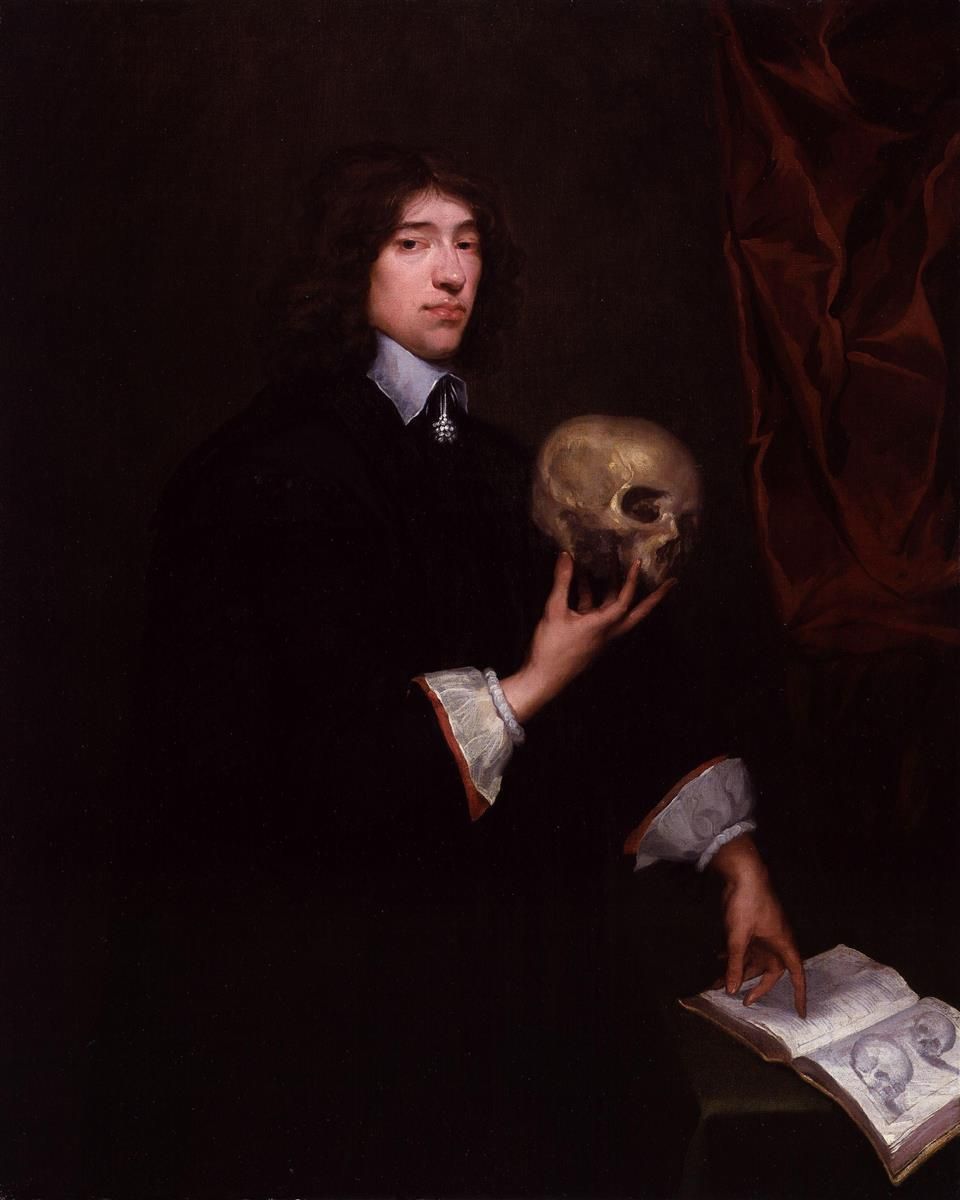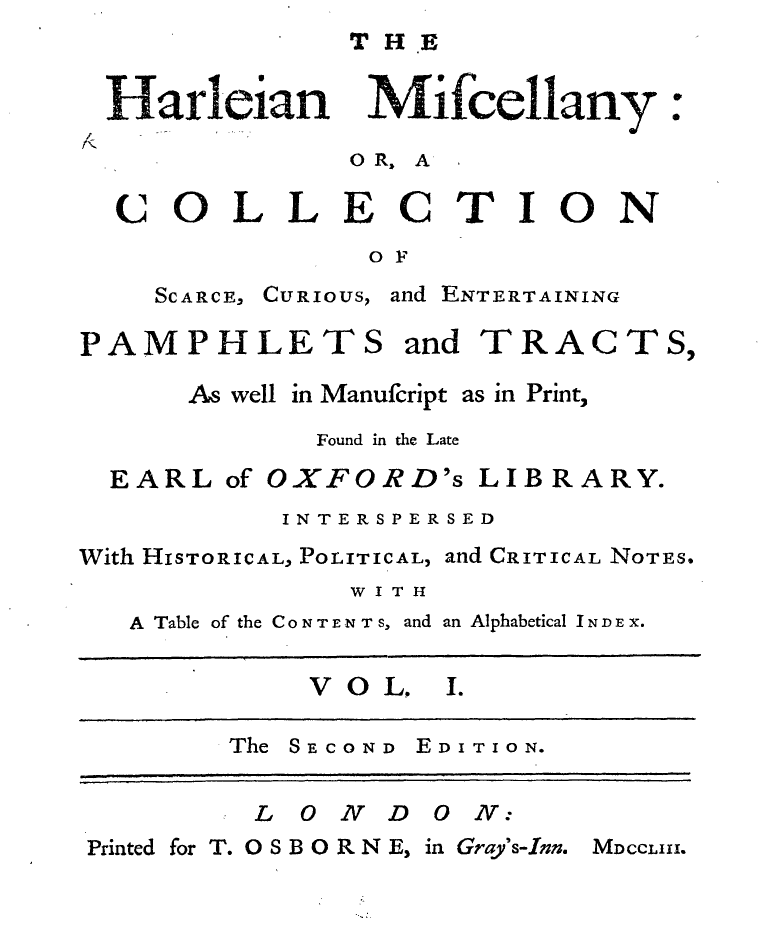|
The Advice To Hartlib
''The Advice to Hartlib'' was a treatise on education, written by Sir William Petty (1623–1687) in 1647 as a letter to Samuel Hartlib.According to Petty's own list of his writings, it was written in 1647 (). and published in 1647/8.On the year of publication: the British Library holds two specimen which are identical, but only differ in date of publication; one is published in 1647, one in 1648. According to it was published early in 1648. It was the first printed work by Petty and covers a total of 31 pages. William Petty was educated in France and in Holland, and returned to England in 1646, to study medicine at Oxford University. By that time he had close contacts with scientists like Thomas Hobbes. He developed an instrument for double-writing and became friends with Samuel Hartlib and Robert Boyle. Samuel Hartlib (c. 1600 – 1662) had a profound interest in many fields of science and was especially active in creating (written) contacts with a number of persons, often scie ... [...More Info...] [...Related Items...] OR: [Wikipedia] [Google] [Baidu] |
William Petty
Sir William Petty FRS (26 May 1623 – 16 December 1687) was an English economist, physician, scientist and philosopher. He first became prominent serving Oliver Cromwell and the Commonwealth in Ireland. He developed efficient methods to survey the land that was to be confiscated and given to Cromwell's soldiers. He also remained a significant figure under King Charles II and King James II, as did many others who had served Cromwell. Petty was also a scientist, inventor, and merchant, a charter member of the Royal Society, and briefly a Member of the Parliament of England. However, he is best remembered for his theories on economics and his methods of ''political arithmetic''. He is attributed with originating the laissez-faire economic philosophy. He was knighted in 1661. He was the great-grandfather of the 1st Marquess of Lansdowne (better known to history as the 2nd Earl of Shelburne), who served as Prime Minister of Great Britain, 1782–1783. Life Early life Pett ... [...More Info...] [...Related Items...] OR: [Wikipedia] [Google] [Baidu] |
New Atlantis
''New Atlantis'' is an incomplete utopian novel by Sir Francis Bacon, published posthumously in 1626. It appeared unheralded and tucked into the back of a longer work of natural history, ''Sylva Sylvarum'' (forest of materials). In ''New Atlantis'', Bacon portrayed a vision of the future of human discovery and knowledge, expressing his aspirations and ideals for humankind. The novel depicts the creation of a utopian land where "generosity and enlightenment, dignity and splendour, piety and public spirit" are the commonly held qualities of the inhabitants of the mythical Bensalem. The plan and organisation of his ideal college, Salomon's House (or Solomon's House), envisioned the modern research university in both applied and pure sciences. Publication history ''New Atlantis'' first appeared in the back of ''Sylva sylvarum'', a rather thorny work of natural history that was published by William Rawley, Bacon's secretary, chaplain and amanuensis in 1626. When ''Sylva'' was en ... [...More Info...] [...Related Items...] OR: [Wikipedia] [Google] [Baidu] |
The Advancement Of Learning
thumbnail, Title page ''The Advancement of Learning'' (full title: ''Of the Proficience and Advancement of Learning, Divine and Human'') is a 1605 book by Francis Bacon. It inspired the taxonomic structure of the highly influential ''Encyclopédie'' by Jean le Rond d'Alembert and Denis Diderot, and is credited by Bacon's biographer-essayist Catherine Drinker Bowen with being a pioneering essay in support of empirical philosophy. The following passage from ''The Advancement of Learning'' was used as the foreword to a popular Cambridge textbook: William Ludlam (1785), ''The Rudiments of Mathematics'', Cambridge. :So that as Tennis is a game of no use in itself, but of great use in respect it maketh a quick eye, and a body ready to put itself in all positions, so, in the Mathematics the use which is collateral, an intervenient, is no less worthy, than that which is principle and intended. Notes External links Full texton Internet Archive Full texton Project Gutenberg P ... [...More Info...] [...Related Items...] OR: [Wikipedia] [Google] [Baidu] |
Francis Bacon
Francis Bacon, 1st Viscount St Alban (; 22 January 1561 – 9 April 1626), also known as Lord Verulam, was an English philosopher and statesman who served as Attorney General and Lord Chancellor of England. Bacon led the advancement of both natural philosophy and the scientific method and his works remained influential even in the late stages of the Scientific Revolution. Bacon has been called the father of empiricism. He argued for the possibility of scientific knowledge based only upon inductive reasoning and careful observation of events in nature. He believed that science could be achieved by the use of a sceptical and methodical approach whereby scientists aim to avoid misleading themselves. Although his most specific proposals about such a method, the Baconian method, did not have long-lasting influence, the general idea of the importance and possibility of a sceptical methodology makes Bacon one of the later founders of the scientific method. His portion of the me ... [...More Info...] [...Related Items...] OR: [Wikipedia] [Google] [Baidu] |
John William Adamson
John William Adamson (22 April 1857 – 12 March 1947) was a British educationist and historian of education. From 1903 to 1924 he was Professor of Education at King's College London. He was the most distinguished historian of education of his day. Early life Adamson started his professional career as a pupil teacher at a Church school in Marylebone. In 1876 he went to St. Paul's College, Cheltenham. There he obtained his teacher's certificate. He then taught in London and became second master of the Great College Street Board School. During this period he took an Arts course as an evening student at King's College London. He gave most of his attention to a study of Latin and Greek. In 1881 he graduated. In 1890 he returned to King's College as the first head of the training department for teachers., ; see also: Professor at King's College Between 1890 and 1924 Adamson held the following positions at King's College: * 1890-1924: Normal Master of King's College School * 1890 ... [...More Info...] [...Related Items...] OR: [Wikipedia] [Google] [Baidu] |
Double Writing (Petty)
''A Declaration Concerning the newly invented Art of Double Writing'' was a pamphlet of 6 leaves, written by Sir William Petty (1623-1687) and first published in 1648. It contained information regarding his invention of the "Art of Double Writing", especially a claim for patent rights. It did not contain any information on what his invention exactly was. William Petty was educated in France and in Holland, and returned to England in 1646, to finish his education in the medical science at Oxford University. He was quite active in many fields of scientific discovery and inventions and developed an instrument for double-writing in 1647. It is mentioned in his first printed publication, titled ''The Advice to Hartlib'' (1647). Petty went to Ireland in 1652 to assist Oliver Cromwell in his conquest and arranged the Down Survey, a cadastral survey of Ireland, between 1654 and 1656. It would take twelve years, until Petty's next publication appeared in print: the '' Proceedings between ... [...More Info...] [...Related Items...] OR: [Wikipedia] [Google] [Baidu] |
Henry Barnard
Henry Barnard (January 24, 1811 – July 5, 1900) was an American educationalist and reformer. Biography He was born in Hartford, Connecticut on January 24, 1811 and attended Wilbraham & Monson Academy. He graduated from Yale University in 1830 and was admitted to the Connecticut bar in 1835. In 1837–1839, he was a member of the Connecticut House of Representatives, effecting in 1838 the passage of a bill, drafted and introduced by himself, which provided for "the better supervision of the common schools", and established a board of "commissioners of common schools" in the state. He was the secretary of the board from 1838 until its abolition in 1842, and during this time worked indefatigably to reorganize and reform the common school system of the state, thus earning a national reputation as an educational reformer. In 1843, he was appointed by the governor of Rhode Island agent to examine the public schools of the state, and recommended improvements; and his work resulte ... [...More Info...] [...Related Items...] OR: [Wikipedia] [Google] [Baidu] |
The Harleian Miscellany
''The Harleian Miscellany'' is a collection of material from the library of the Earl of Oxford and Earl Mortimer collated and edited by Samuel Johnson and William Oldys between 1744 and 1753 on behalf of the publisher Thomas Osborne. Its subtitle was A Collection of Scarce, Curious, And Entertaining Pamphlets And Tracts, as well In Manuscript As In Print, Found In The Late Earl Of Oxford's Library, Interspersed With Historical, Political, And Critical Notes. Provenance The "late Earl of Oxford" whose library was the source of the texts could refer either to Robert Harley, 1st Earl of Oxford and Earl Mortimer (died 1724), or to his son, Edward Harley, 2nd Earl of Oxford and Earl Mortimer (died 1741). A passage at the beginning of the first volume emphasizes the role of Robert Harley, the first earl, in the creation of the library: There can be no Objection against the Prefixing the reasons for Creating the Right Honorable Robert Harley, Esq., a Peer of Great-Britain, and Earl ... [...More Info...] [...Related Items...] OR: [Wikipedia] [Google] [Baidu] |
Wikidata
Wikidata is a collaboratively edited multilingual knowledge graph hosted by the Wikimedia Foundation. It is a common source of open data that Wikimedia projects such as Wikipedia, and anyone else, can use under the CC0 public domain license. Wikidata is a wiki powered by the software MediaWiki, and is also powered by the set of knowledge graph MediaWiki extensions known as Wikibase. Concept Wikidata is a document-oriented database, focused on items, which represent any kind of topic, concept, or object. Each item is allocated a unique, persistent identifier, a positive integer prefixed with the upper-case letter Q, known as a "QID". This enables the basic information required to identify the topic that the item covers to be translated without favouring any language. Examples of items include , , , , and . Item labels need not be unique. For example, there are two items named "Elvis Presley": , which represents the American singer and actor, and , which represents ... [...More Info...] [...Related Items...] OR: [Wikipedia] [Google] [Baidu] |



